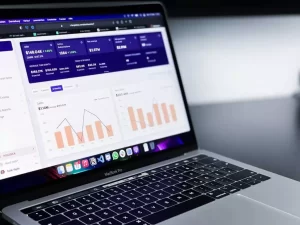The Performance of a website is a crucial factor for success. A critical component of this performance is the loading speed of pages, which influences both the user experience and search engine optimization (SEO). This article explores techniques for improving page loading times and their impact on user experience and SEO.
I. The Importance of Page Loading Speed for User Experience
User Retention
Page loading speed significantly impacts user retention. Studies show that users quickly abandon slow-loading websites, which can result in traffic and revenue loss. A fast-loading site keeps users engaged and provides a positive experience.
Higher Conversions
Page loading speed also affects the conversion rate. A faster website has a better chance of converting visitors into customers or encouraging them to take actions such as filling out a form or making a purchase. Speed influences users’ trust in your site.
II. The Impact of Page Loading Speed on SEO
Google and Ranking Factors
Search engines, with a strong focus on Google, pay considerable attention to the factor of page loading speed when evaluating and ranking websites in search results. Speed is a ranking factor in Google’s algorithm, meaning that a faster site has a higher chance of appearing in the top search results. This can lead to more organic traffic and online visibility.
User Experience and Largest Contentful Paint (LCP)
In recent updates to Google’s algorithm, such as the Page Experience Update, Google measures page loading speed using metrics like Largest Contentful Paint (LCP). A better LCP indicates a better user experience and can have a positive impact on search result rankings.
III. Techniques for Improving Page Loading Speed and SEO
Image Optimization
Images that haven’t been properly compressed or optimized can significantly impact a website’s page loading time. By resizing and adequately compressing images, you can reduce their file size, contributing to faster page loading and overall performance improvement.
Cache Usage
Implementing a cache strategy for your site’s resources has the potential to significantly improve page loading time, offering users the advantage of experiencing faster loading. This approach works by temporarily storing resources, meaning users don’t have to download the same resources every time they access the page. The end result is a more efficient browsing experience with shorter loading times, especially for returning users.
Compression and Minification of CSS and JavaScript Files
Reducing the size of CSS and JavaScript files through techniques like minification and compression can have a significant impact on overall site performance, considerably speeding up page loading times. This optimization results in reduced effort required for downloading and processing resources, leading to faster page loading and, consequently, a more pleasant user experience.
Content Delivery Network (CDN) Usage
A Content Delivery Network (CDN) service disperses a website’s content across servers located in various parts of the world, thereby contributing to fast loading for users from different geographic regions. This strategy ensures rapid access to webpage content, regardless of users’ geographic location, leading to a more efficient and consistent browsing experience.
Evaluation of Plugins and Add-Ons
Adding plugins and additional modules can involve introducing additional code, which inevitably can negatively impact a website’s loading speed. It’s crucial to periodically review these components, removing those that are non-essential or have an unfavorable impact on site performance to ensure a smooth and efficient browsing experience for users.
Page loading speed significantly impacts user experience and SEO. A fast website not only keeps visitors interested but also has a better chance of achieving a higher ranking in search engine results. By implementing page loading speed optimization techniques, you can improve both user experience and the SEO performance of your site. Therefore, invest time and resources in enhancing page loading speed to achieve online success.
Discover the 5 key elements of creating a strong brand identity through web design!
Follow us on social media:
Instagram: https://www.instagram.com/securemenow/
Facebook: https://www.facebook.com/securmenow
We offer Web Design services. Contact us







